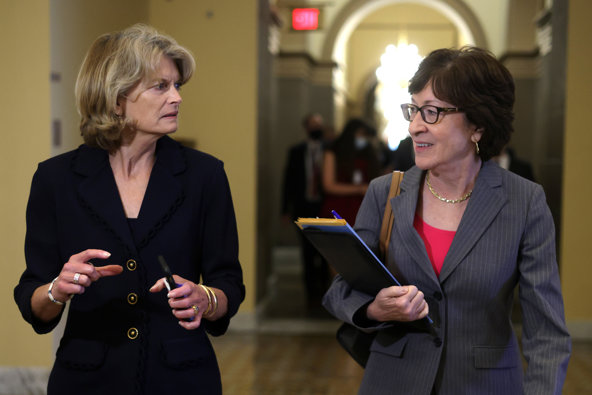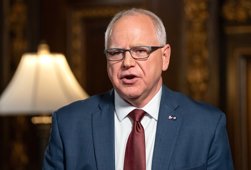
GOP Senators Oppose Trump’s $9B Foreign Aid, NPR Cuts
Two Republicans oppose Trump’s $9B cuts to foreign aid, NPR funding, citing transparency and impact on public broadcasting.
GOP Senators Defy Party Line Over Spending Cuts
Senate Republicans successfully advanced President Donald Trump’s $9 billion clawback bill early Thursday, moving to slash funding for foreign aid and public broadcasting. However, not every Republican senator was on board. Senators Lisa Murkowski of Alaska and Susan Collins of Maine broke ranks, joining every Democrat to vote against the measure. The legislation, designed to cancel unspent funds for the current fiscal year, passed 51-48 and now heads to the House for a final vote by Friday.
The bill targets nearly $8 billion in cuts to the U.S. Agency for International Development (USAID) and over $1 billion from the Corporation for Public Broadcasting (CPB), which provides federal funding to NPR and PBS. GOP leaders hoped that sparing $400 million for Bush-era international HIV/AIDS prevention programs would sway hesitant lawmakers. But Murkowski and Collins maintained that transparency and legislative authority were at stake.
Transparency and Local Impact at the Forefront
Collins, chair of the Senate Appropriations Committee, voiced support for rescissions as part of the regular appropriations process but opposed the White House’s approach, citing insufficient details from the Office of Management and Budget. “The sparse text sent to lawmakers included little detail and did not give a specific accounting of programs that would be cut,” she said, raising concerns about how reductions would affect essential services such as education, food security, and sanitation.
Murkowski, referencing tsunami warnings that reached her state hours before the vote, stressed the importance of public broadcasting for rural communities. She warned that “today of all days, we should vote down these misguided cuts to public broadcasting.” Both senators attempted to amend the bill to mitigate cuts to rural radio stations and other critical services, but their proposals were unsuccessful.
Senator Eric Schmitt of Missouri, leading the bill in the Senate, dismissed the dissent, insisting that lawmakers were fulfilling their duty to eliminate wasteful spending. Others, like Senator Ron Johnson of Wisconsin, downplayed the cuts as a tiny fraction of the federal budget, expressing trust in the Trump administration’s spending priorities.
Some, including Senator Thom Tillis of North Carolina, acknowledged the political risks faced by Collins and Murkowski. He noted that Collins, in particular, would be critical in future bipartisan budget negotiations and that consistency in voting was essential to maintaining credibility in Congress.
House Prepares for Close Vote
The House of Representatives, where Republicans hold a slim majority, must now consider the rescissions package. Fiscal conservatives, including Reps. Chip Roy, Tim Burchett, and Ralph Norman, signaled tentative support for the bill, despite earlier reservations about changes to the Senate version. Their cautious acceptance is seen as good news for GOP leaders, who can afford only minimal defections given their narrow margin.
The bill’s path through the House Rules Committee marks the final hurdle before a chamber-wide vote. Should it pass, the measure will be sent to President Trump’s desk for signature, enacting sweeping cuts to foreign aid and public media and setting a precedent for future budgetary rescissions. As the debate unfolds, the division among Republicans highlights ongoing tensions over federal spending and the balance of power between Congress and the executive branch.






